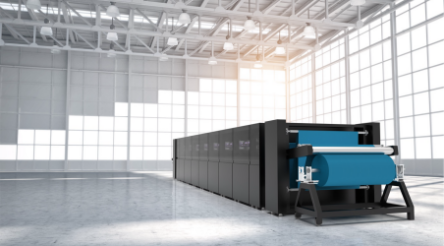iLAuNCH backs green innovation in epoxy resins for composites

Adelaide-based green innovation company Change Climate Pty Ltd has teamed with three iLAuNCH Trailblazer universities to explore the suitability of a bio-epoxy resin for the manufacture of durable composites for aerospace applications.
The University of Southern Queensland (UniSQ), The Australian National University and the University of South Australia will work with Climate Change, the maker of BYOXY bio epoxies.
Although current epoxy resin reinforced composites show incredible properties of high strength and low weight needed in the extreme environments of space, they can also degrade very rapidly with constant exposure to ultraviolet radiation.
iLAuNCH Chief Technology Officer Dr Joni Sytsma said: “The novel bio-epoxy formulation being investigated in this project has a game changing characteristic of being insensitive to ultraviolet radiation, which could open up their applicability in aerospace and space environments.
“As the ultraviolet radiation environment of space is so severe, current epoxy resins do not survive even months.
“So if this material is indeed superior to traditional petrochemical based epoxy formulations, then it could open up incredible new avenues for space hardware manufacturing in Australia.”
USQ Professor in Civil Engineering Dr Allan Manalo will lead the project from Toowoomba, working with Future Industries Institute, UniSA Professor Colin Hall, and Eduardo Trifoni, Head of the National Space Test Facility National Space Test Facility, ANU.
Dr Manalo said: “We are looking to mature current research from the Centre for Future Materials at the University of Southern Queensland which will integrate Change Climate’s bio-epoxy resin into the aerospace industry.”
Change Climate ‘BYOXY Bio-Epoxy Resin’ is claimed to be the world’s only bio-based epoxy resin made from 100 percent renewable resources. They are non-toxic and a recycling by-product from the manufacture of sustainable biodiesel and other industries.
Change Climate CEO Sean Steed said: “Change Climate is looking forward to working with the iLAuNCH Trailblazer universities in a joint project that will increase sovereign capability for manufacturing of aerospace structures.
“We will leverage the University of Southern Queensland's extensive experience in structural composites, utilising their capabilities to manufacture and test these structures and assess their suitability for a wide array of markets.”
Laboratory experiments at UniSQ already show that this bio-epoxy resin system has very low shrinkage properties and superior ultraviolet properties.
Further work will assess the radiation resistance, resistance to atomic oxygen, corrosion resistance, outgassing, and thermal stability of the bio-epoxy and its produced composites by demonstrating its performance in an operational environment and elevating the technology to TRL 7-8.
The successful completion of this project also relies on the advanced environmental simulation testing facilities at UniSA and the ANU, providing proactive collaboration for the adoption and commercialisation of this technology.
Picture: BYOXY bio-epoxy
Topics aerospace BYOXY Bio-Epoxy resin Change Climate Pty Ltd Composites Dr Allan Manalo Dr Joni Sytsma Eduardo Trifoni epoxy resins iLAuNCH Trailblazer kevlar Manufacturing News materials Professor Colin Hall Sean Steed space Technology University of Douth Australia University of Southern Queensland
@aumanufacturing Sections
Analysis and Commentary Awards casino reviews Defence Gambling Manufacturing News Online Casino Podcast Technology Videos





